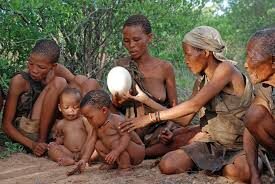This assignment has 4 parts
Part 1: Over winter break BMCC wants to offer
- CPR & First Aid training
- Dignity for All Students (DASA) workshop
- Child Abuse Identification Training
- School Violence Prevention and Intervention Workshop
We need to know if enough people would be interested in participating in the free workshops. Complete this survey to indicate if you are interested in taking any of the free workshops.
Part 2: Go to FlipGrid (https://flipgrid.com/744a7aac your user name is your first name as it appears in CUNY First) to answer these questions:
For each expectation, explain which do you believe is normal (A or B). Why?
Expectation #1
- Babies can learn to sleep alone through the night; when depends on the baby & how the family handles the baby waking at night.
- Babies can’t be expected to sleep alone or sleep through the night. Putting a baby in a crib in another room is cruel. l.
Expectation #2
- Toilet training occurs during the 3rd year of life, when signs of readiness appear
- Infants can be toilet trained & out of diapers by their 1st birthday
Expectation #3
- ) Babies can be expected to make eye contact, which is a way of establishing intimacy & is part of attachment.
- Babies can be expected to make eye contact, but they must learn not to make eye contact with elders.
Expectation #4
- Toddlers have to come to see themselves as individuals who can possess objects before they can learn to share. They have to understand ownership.
- Toddlers have to understand that they are not individuals & that all possessions are shared. They can be expected to share from birth.
Part 3: Read Gonzalez-Mena & Bhavnagri (2000) AND Im, Parlakian, & Sanchez (2007); I suggest completing this handout as you read the articles.
GonzalezMena & Bhavnagri (2000)
Im, Parlakian & Sanchez (2007)
Part 4:
1) Use Hypothesis to identify where Denise uses self-knowledge, reflective thinking, cultural sensitivity, or culturally informed teaching. How is she demonstrating the skill you identify, as defined by Gonzalez-Mena & Bhavnagri (2000) and Im, Parlakian, & Sanchez (2007)?
2) Answer the questions following the scenario.
Denise, an infant teacher, was surprised to hear the mother of 9-month-old Sunil explain that she had begun potty-training her son. Denise’s immediate reaction was that 9 months was too early! She felt that potty training should begin at 2, at the earliest. This is what Denise learned in her classes and training. And it’s what she did with her own children.
But Denise also knew that this family was from a culture different from her own. Sunil’s parents had recently moved to the U.S. from India. She knew this might mean the family used child-rearing strategies that were different from the ones she had learned.
Denise wondered what Sunil’s mother meant by “toilet training.” Denise learned from Sunil’s mother that “toilet training” for her meant she held him over the toilet several times during the day. Then she made a “psssshhh” sound. This gently encouraged him to urinate. She made clear that Sunil is relaxed and enjoys being held comfortably by his mother when she does this. She never held him over the toilet once he showed signs of being restless. She also never worried about it if he did not urinate. Sooner or later, she explained, Sunil would learn to go when he was held over the toilet. She wanted Denise to try this at the program as well. She offered to show Denise exactly how she uses this technique. Denise agreed.
Denise said that she was worried about this taking a lot of time. She thought that on some days, it might be hard for her to take this time with Sunil. They agreed to try things out for a week and then talk about how it was going. Denise also offered Sunil’s mother information on the Western approach to toilet training. Sunil’s mother and Denise talked about how they each have learned a different way to help children get ready to use the toilet. At the same time they both agreed that children should not be forced to use the toilet before they are ready.
- How did self-knowledge, reflective thinking, cultural sensitivity, or culturally informed teaching help Denise in working with Sunil and his mother? Refer to both to the Gonzalez-Mena & Bhavnagri (2000) and Im, Parlakian, & Sanchez (2007) readings in your response.
- How do you think Denise’s response affected her relationship with Sunil and his family?
- When do you think the “right” time is to start potty training? What experiences in your life might have influenced your thinking about this issue?
- Is the family of your Infant/Family Case Study following a set schedule or the child’s natural rhythms? How do you know? Give evidence to support your answer.
